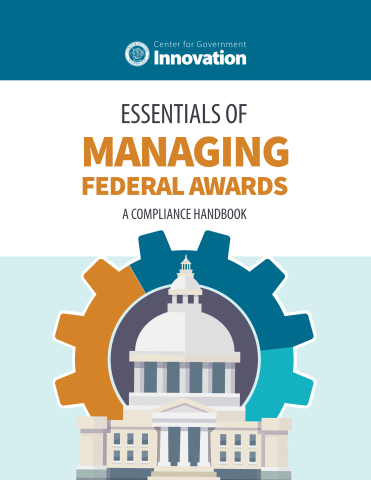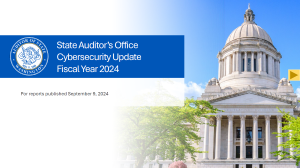The Audit Connection Blog
Innovative Washington, Oregon audits explore double Medicaid enrollment across state lines
A new performance audit from the Office of the Washington State Auditor found that Washington pays millions of dollars for Medicaid coverage of people already insured by other states. Auditors worked in tandem with their counterparts in the Oregon Secretary of State Audits Division to understand how the movement of Medicaid clients between the neighboring states affects enrollment. ... CONTINUE READING
State’s cannabis tracking system falls short of long-sought goals, audit finds
A follow-up performance audit from the State Auditor's Office found the Liquor and Cannabis Board currently lacks a system that reliably tracks cannabis products in our state, which is critical for ensuring a legal, well-regulated industry with proper tax collection. ... CONTINUE READING
SAO’s newest resource helps local governments manage federal awards
The Office of the Washington State Auditor has published a new resource for local governments called Essentials of managing federal awards: A compliance handbook. Now governments can access the latest version of this handbook at any time of the year in our Resource Library. ... CONTINUE READING
Swapping the schedule: Monitoring shift exchanges in fire districts and other local governments
Fire districts, city police departments and county sheriff’s offices commonly allow staff to exchange shifts, but recent audits have found that governments have not adequately overseen their shift exchange programs to prevent clear and large imbalances in unworked shifts. It is important to prevent these discrepancies to ensure public funds are used appropriately. ... CONTINUE READING
Audit finds significant lack of financial oversight at Port of Peninsula
A new audit from the State Auditor's Office found that the Port of Peninsula mismanaged its revenues, resulting in financial disarray, and failed to follow parts of the Open Public Meetings Act. ... CONTINUE READING
Cybersecurity Special Report 2024: Roundup of fiscal year 2024 audits and other work
The State Auditor’s Office plays an important role in Washington’s cybersecurity efforts through our audits and outreach activities, with the goal of helping ensure IT security is improved at state, local and critical infrastructure government bodies across the state. We have developed a short overview of our work and findings in the area of cybersecurity over the course of fiscal year 2024. ... CONTINUE READING
WFOA 2024: Preserve your core values with the State Auditor’s Office
For the 2024 WFOA Conference, SAO staff will be presenting on topics like BARS updates, federal grant management, cybersecurity, internal controls and more. And several of our “frauditors” will share the latest fraud-prevention practices and insights at our ever-popular Fighting Fraud Friday. Read on for our entire list of preconference trainings and main sessions, plus a special digital edition of our Audit Connection newsletter featuring highlights, news and resources. ... CONTINUE READING
FDTA proposed rules public comment period is open
We highly encourage all local governments and associations to participate in the comment period for the phase one FDTA proposed rules. The act seeks to modernize the collection and dissemination of financial data by federal financial regulators by requiring information submitted to the agencies to be in a machine-readable format. ... CONTINUE READING
Preparing your school district’s financial reporting package? SAO’s updated 2023-24 review checklist can help
The end of summer also means the end of another school district fiscal year. We’re here to help you close the books and prepare your financial reporting package with our 2023-24 Checklist for Preparing and Reviewing School District Financial Statements. ... CONTINUE READING
Performance audit identifies gap in transferring college credit earned in high school
The State Auditor's Office has released a performance audit that looked at transferring college credits earned in high school through two popular dual credit programs. The audit found a major gap in the transmission of students’ transcripts to the institution in which they enroll: students who must submit their transcripts do not always do so. ... CONTINUE READING








